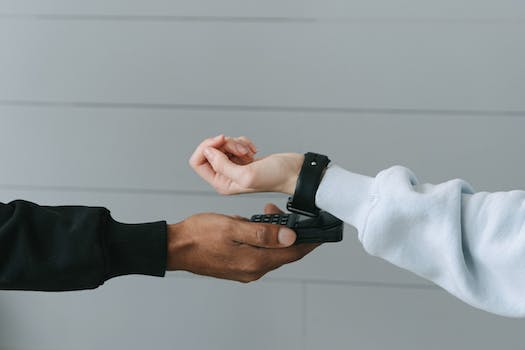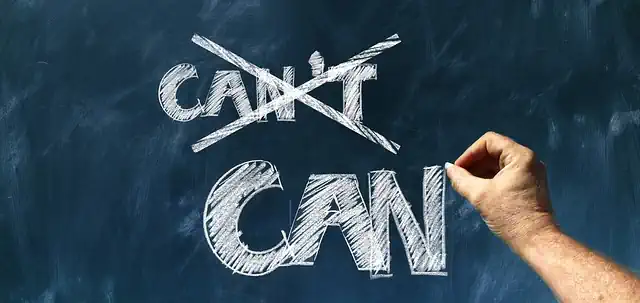How To Make Money Buying And Selling Horses
Introduction

This article will provide a brief guide on how to make money buying and selling horses. Whether you are a seasoned equestrian or just starting out, there are several ways to turn your passion for horses into a profitable business. From identifying market trends to building a network of buyers and sellers, this guide will cover the basics of buying and selling horses for profit.
Maximizing Profit: Tips for Buying and Selling Horses
Horses are majestic creatures that have been a part of human history for centuries. They have been used for transportation, agriculture, and even in warfare. However, in recent times, horses have become a popular commodity for buying and selling. If you are interested in making money through buying and selling horses, there are a few things you need to keep in mind.
Firstly, it is important to understand the market. The horse market is a complex one, and it is important to have a good understanding of the different breeds, their characteristics, and their values. You should also be aware of the different types of buyers and sellers in the market, such as breeders, trainers, and private owners.
Once you have a good understanding of the market, you can start looking for horses to buy. There are several ways to find horses for sale, such as through online classifieds, auctions, and horse shows. When looking for horses to buy, it is important to keep in mind your budget and your goals. You should also consider the horse’s age, breed, and training level.
When you have found a horse that you are interested in buying, it is important to have a veterinarian perform a pre-purchase exam. This exam will help you determine if the horse has any health issues that may affect its value or performance. It is also important to have a contract in place that outlines the terms of the sale, such as the purchase price, payment terms, and any warranties or guarantees.
Once you have purchased a horse, it is important to take good care of it. This includes providing proper nutrition, exercise, and veterinary care. You should also consider hiring a trainer to help you prepare the horse for sale. A well-trained horse is more likely to sell for a higher price than one that is untrained.
When it comes time to sell your horse, there are several things you can do to maximize your profit. Firstly, it is important to have the horse looking its best. This includes grooming, clipping, and conditioning the horse. You should also have professional photos and videos taken of the horse to use in advertising.
When advertising your horse for sale, it is important to target the right audience. This may include advertising in breed-specific publications or online forums. You should also be prepared to negotiate with potential buyers. It is important to have a clear understanding of the horse’s value and to be willing to walk away from a sale if the price is not right.
In conclusion, buying and selling horses can be a profitable venture if done correctly. It is important to have a good understanding of the market, to find horses that fit your budget and goals, and to take good care of them. When it comes time to sell, it is important to have the horse looking its best and to target the right audience. With these tips in mind, you can maximize your profit and enjoy the rewards of buying and selling horses.
The Art of Negotiation: Getting the Best Price for Your Horses
As a horse trader, one of the most important skills you need to have is the art of negotiation. Whether you are buying or selling horses, you need to be able to get the best price possible. This requires a combination of knowledge, experience, and communication skills.
The first step in negotiating a good price for your horse is to do your research. You need to know the market value of the horse you are buying or selling. This means looking at similar horses that have recently sold and comparing their prices. You can also talk to other horse traders and breeders to get an idea of what the going rate is for a particular breed or type of horse.
Once you have a good idea of what the horse is worth, you need to be prepared to negotiate. This means being confident in your knowledge of the horse and its value, but also being willing to listen to the other party’s perspective. You should be prepared to make concessions, but also to stand firm on your bottom line.
One important thing to keep in mind when negotiating is that it is not just about the price. There may be other factors that are important to the other party, such as the horse’s temperament, training, or health. You need to be able to address these concerns and find a solution that works for both parties.
Another key aspect of negotiation is communication. You need to be able to clearly articulate your position and listen to the other party’s concerns. This means being a good listener and asking questions to clarify any misunderstandings. It also means being able to express yourself in a way that is respectful and professional.
One technique that can be helpful in negotiation is to start with a high asking price or offer. This gives you room to negotiate down to a more reasonable price or offer. However, you need to be careful not to overprice the horse or offer too low of a price, as this can turn off the other party and make it difficult to reach a deal.
Finally, it is important to remember that negotiation is a process, not a one-time event. You may need to go back and forth several times before reaching a final agreement. This requires patience and persistence, but also a willingness to walk away if the other party is not willing to meet your bottom line.
In conclusion, the art of negotiation is a critical skill for anyone involved in buying and selling horses. It requires a combination of knowledge, experience, and communication skills, as well as a willingness to be flexible and patient. By doing your research, being prepared to negotiate, and communicating effectively, you can get the best price for your horses and build a successful career as a horse trader.
Marketing Your Horses: Strategies for Attracting Buyers
As a horse owner, you may have considered buying and selling horses as a way to make some extra money. However, the process of marketing your horses and attracting potential buyers can be daunting. In this article, we will discuss some strategies for effectively marketing your horses and increasing your chances of making a successful sale.
Firstly, it is important to have a clear understanding of your target market. Who are the potential buyers for your horses? Are they experienced riders or beginners? Are they looking for a specific breed or discipline? Once you have identified your target market, you can tailor your marketing efforts to appeal to their specific needs and preferences.
One effective way to market your horses is through online platforms such as social media and horse classified websites. These platforms allow you to reach a wider audience and showcase your horses to potential buyers from all over the world. When creating your online listings, be sure to include high-quality photos and detailed descriptions of your horses, including their breed, age, height, and any notable achievements or training they have received.
Another effective marketing strategy is to attend horse shows and events. These events provide an opportunity to showcase your horses in person and connect with potential buyers face-to-face. Be sure to bring your best horses and present them in a professional manner, with clean and well-groomed appearances. You can also distribute flyers and business cards to interested parties, providing them with your contact information and details about your horses.
Networking is also an important aspect of marketing your horses. Connect with other horse owners, trainers, and breeders in your area and let them know that you have horses for sale. They may be able to refer potential buyers to you or even purchase your horses themselves. Additionally, joining local horse clubs and organizations can provide opportunities to meet potential buyers and showcase your horses to a targeted audience.
When marketing your horses, it is important to be honest and transparent about their abilities and any potential issues they may have. This will help build trust with potential buyers and increase the likelihood of a successful sale. Be prepared to answer any questions they may have and provide them with all the information they need to make an informed decision.
Finally, pricing your horses appropriately is crucial to attracting potential buyers. Research the market and compare prices for similar horses in your area to determine a fair and competitive price for your horses. Be open to negotiation, but also be firm in your pricing to ensure that you receive a fair value for your horses.
In conclusion, marketing your horses effectively is key to making a successful sale and generating income from buying and selling horses. By understanding your target market, utilizing online platforms and attending events, networking with other horse owners, being honest and transparent, and pricing your horses appropriately, you can increase your chances of attracting potential buyers and making a successful sale. With these strategies in mind, you can turn your passion for horses into a profitable business venture.
Building a Successful Horse Trading Business: Key Factors to Consider
Horse trading can be a lucrative business if done correctly. However, it requires a lot of hard work, dedication, and knowledge of the industry. In this article, we will discuss the key factors to consider when building a successful horse trading business.
Firstly, it is important to have a clear understanding of the market. You need to know what types of horses are in demand, what their average selling price is, and what factors affect their value. This information can be obtained by attending horse auctions, talking to other horse traders, and doing research online.
Secondly, you need to have a good eye for horses. This means being able to identify a horse’s strengths and weaknesses, as well as its potential. You should also be able to assess a horse’s overall health and soundness. This requires a lot of experience and knowledge, so it is important to spend time around horses and learn as much as you can.
Thirdly, you need to have a network of contacts in the industry. This includes breeders, trainers, and other horse traders. These contacts can help you find good horses to buy, as well as potential buyers for the horses you are selling. Building a network takes time, but it is essential for success in the horse trading business.
Fourthly, you need to have a solid business plan. This includes setting goals, creating a budget, and developing a marketing strategy. You should also have a plan for how you will handle the horses you buy, including their care and training. A good business plan will help you stay organized and focused, and will increase your chances of success.
Fifthly, you need to have a good reputation in the industry. This means being honest and fair in your dealings with others, and treating horses with respect and care. A good reputation will help you build trust with potential buyers and sellers, and will increase your chances of repeat business.
Sixthly, you need to be prepared to take risks. Horse trading can be unpredictable, and there is always a chance that you will lose money. However, if you are willing to take calculated risks and learn from your mistakes, you can increase your chances of success.
Finally, you need to be passionate about horses. This is not a business that you can do just for the money. You need to genuinely love horses and be committed to their welfare. This passion will help you stay motivated and focused, even when things get tough.
In conclusion, building a successful horse trading business requires a lot of hard work, dedication, and knowledge. You need to have a clear understanding of the market, a good eye for horses, a network of contacts, a solid business plan, a good reputation, a willingness to take risks, and a passion for horses. If you can master these key factors, you can build a successful and rewarding career in the horse trading industry.
Navigating Legal Issues in Horse Trading: Protecting Your Investment
Horse trading can be a lucrative business, but it also comes with its fair share of legal issues. As a horse trader, it is important to protect your investment and navigate the legal landscape to avoid any potential legal pitfalls.
One of the most important legal considerations in horse trading is the issue of ownership. Before buying a horse, it is important to ensure that the seller has clear ownership of the animal. This can be done by checking the horse’s registration papers and verifying the seller’s identity. It is also important to obtain a bill of sale that clearly outlines the terms of the sale, including the purchase price, any warranties or guarantees, and any conditions of the sale.
Another important legal consideration is the issue of liability. As a horse trader, you may be held liable for any injuries or damages caused by the horses you sell. To protect yourself from liability, it is important to have a written contract that clearly outlines the terms of the sale and any warranties or guarantees. You should also consider obtaining liability insurance to protect yourself in case of any accidents or injuries.
In addition to ownership and liability issues, there are also a number of regulations that govern horse trading. These regulations vary by state and may include licensing requirements, health and safety regulations, and animal welfare laws. It is important to familiarize yourself with these regulations and ensure that you are in compliance with all applicable laws.
One of the best ways to protect yourself from legal issues in horse trading is to work with a reputable and experienced equine attorney. An equine attorney can help you navigate the legal landscape and ensure that you are in compliance with all applicable laws and regulations. They can also help you draft contracts and other legal documents to protect your investment and minimize your liability.
In addition to working with an equine attorney, there are a number of other steps you can take to protect yourself in horse trading. These include conducting thorough research on the horses you are interested in buying, obtaining a pre-purchase exam to ensure that the horse is in good health, and maintaining accurate records of all transactions.
Ultimately, the key to success in horse trading is to be diligent, informed, and proactive. By taking the time to navigate the legal landscape and protect your investment, you can minimize your risk and maximize your profits. Whether you are a seasoned horse trader or just starting out, it is important to stay up-to-date on the latest legal developments and regulations in the industry. With the right knowledge and resources, you can make money buying and selling horses while also protecting yourself from legal issues and liabilities.
Conclusion
Conclusion: Making money buying and selling horses requires knowledge, experience, and a good eye for quality horses. It is important to research the market, establish a network of contacts, and develop a solid business plan. Additionally, it is crucial to prioritize the welfare of the horses and ensure they are well-cared for throughout the buying and selling process. With dedication and hard work, buying and selling horses can be a profitable and rewarding venture.






